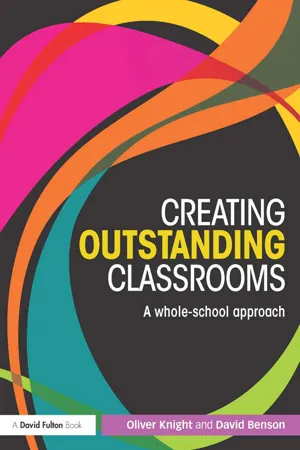![]()
Stage 1 looks at a simple framework for planning at a medium-term level
Stage 2 then adds in more thinking to this framework by addressing the role of knowledge, concepts and understanding
Stage 3 goes deeper into the theory of knowledge by looking at Performances of Understanding – how do we know they know?
Stage 4 then explores ideas around disciplinary thinking and how that can be built into the planning process
Stage 5 then looks at how you can weave together a simple planning framework with more complex ideas about learning. This is the Fertile Question
Stage 6 looks at the Learner Profile as a way of deciding exactly what it is you hope your teaching will ‘create’
Stage 7 brings it all together in the construction of your own medium-term plans using everything you have encountered and thought about
![]()
The design and implementation of the curriculum is at the heart of school life. It creates the atmosphere for learning and sets the tone and philosophy for teachers. An inconsistent or incoherent approach to curriculum design and roll-out leads to a messy and disjointed learning experience.
This part of the handbook deals with the theoretical aspects of this approach. It outlines what the research currently says works best and what this research looks like in practice. The curriculum design section culminates in pulling together all of the constituent parts and providing a living example by taking the reader through the construction and implementation of a Fertile Question. The design of the curriculum is shaped by the five principles of expert teaching and learning outlined on page 21.
This chapter of the book is broken down into stages to help make progress in understanding more fluid. There are training activities built in throughout the stages that can either be used as they are or adapted to better suit the needs of the audience.
Woven into this chapter are two case studies. These are articles that have been published externally but that help to bring clarity to the process by outlining the thinking that individual teachers grappled with in constructing their teaching around the core principles of our approach.
What forces shape our curriculum model?
Figure 1.1 The forces that shape our curriculum model
Why do we consider this approach to be effective?
A high-level review of the National Curriculum carried out by Tim Oates in 2010 emphasized the importance of a focus on concepts and knowledge in developing students' understanding. Moreover, it also looked at where the UK's current curriculum focus had gone wrong and what needed to be done to fix this. The extract below from Oates' paper adds justification to our case for the approach outlined in this book.1
There is strong empirical and theoretical evidence for a very strong focus on concepts and principles. Transnational comparisons make clear that high-performing systems indeed focus on concepts and principles. ‘Concepts and principles’ include ‘conservation of mass’, ‘elasticity’, ‘metaphor’; within ‘concepts’ we can include understanding of ‘key operations’ such as ‘working with vectors’ in mathematics. But this focus on concepts is justified not only by the fact that high-performing systems include such a focus, it is also strongly endorsed by theory. The crucial nature of ‘organising concepts’ has been highlighted in psychological research since the 1960s (Ausubel DP 1960). The more recent work on organising concepts (or ‘schemata’) has been used to develop highly effective medical training (Newble D & Clarke RM 1986). The research in this area is compelling. ‘Organising concepts’ are needed to facilitate retention in memory, develop economic mental processing, and support analytic reasoning. Concepts and principles are critical. The specific information embedded in contexts can decay into mere ‘noise’ unless individuals have concepts and principles to organise and interpret the content of those contexts. The critical role of concepts is reinforced by work on ‘surface’ and ‘deep learning’ (Black P & Wiliam D 1998).
Work by Michael Shayer (King's College, London) (Shayer M & Ginsburg D 2009) suggests that, in England, 11 year olds' understanding of fundamental ‘conservations’ (of volume, of mass, etc) have decayed over the last two decades. The precise cause of this decay has not been established (change in children's play, increased focus on context rather than concepts in teaching and assessment have been postulated) but whatever the cause, this work highlights the importance of clear focus on development of these fundamentals.
The later population of young people studied by Shayer were educated through the National Curriculum – the entitlement function appears to have decayed for these children. Knowledge is, of course, fundamental – as is retention of information in memory (Wyer RS (ed) 1995). Pupils should emerge from schooling with large bodies of knowledge (Young M 1971; Young M 2010) – but the critical issue is this: organizing concepts and principles are crucial to the acquisition and retention of this knowledge (Bernstein B 1971) – bodies of specific knowledge can be tied to the progressive development of these fundamental concepts and principles.
So what does the approach look like?
It is all very well saying we need to foreground academic concepts in our lessons, but how do we actually go about this?
Stage 1: Introduction to medium-term planning – the Teaching and Learning cycle
What is the Teaching and Learning cycle?
The Teaching and Learning cycle is a way of ensuring medium-term planning has an impact on progress and attainment. The cycle forms the overarching scaffold for every lesson and enquiry (Fertile Question). The cycle works by posing seven key questions that enshrine the construction of an enquiry (medium-term plan). It is the simplest and most effective way of enshrining the medium-term planning process into a manageable and accountable model for all teachers.
This is the first step in planning for progression in disciplinary thinking. Once the cycle is unders...

